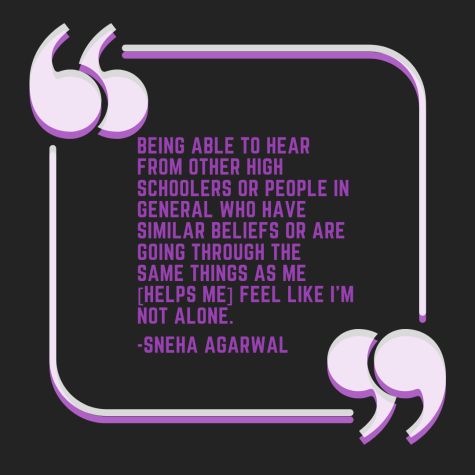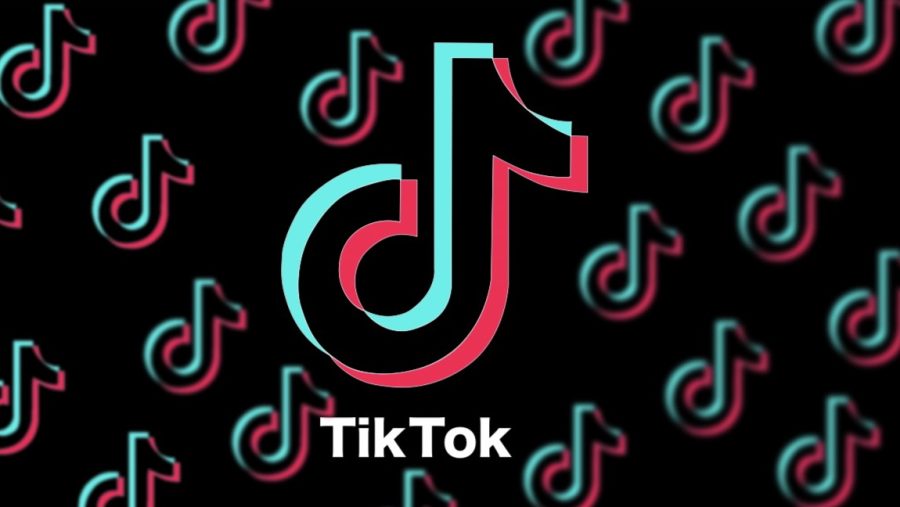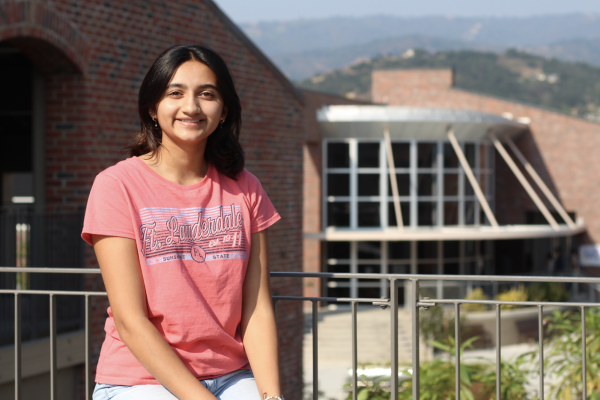Tok-xicity?
Exploring the influence TikTok has on high school students
In only the first three quarters of 2022 alone, TikTok has had 571 million downloads
November 12, 2022

Just hours after posting a lighthearted TikTok with friends, sophomore Julie Yu was shocked to see her post going viral — but for the wrong reasons. Late last year, Yu and her group of friends went to a football game and to capture the moment’s enjoyment, the group decided to film a TikTok in which they lip-synced to a trending audio. The TikTok featured Yu and three of her friends, with Yu in the middle holding the phone, Nichole Go and Chloe Lee on her left and Samika Bhatkar on her right.
The video quickly reached over 100,000 views — now sitting at 1 million — with the majority of the comments claiming that Yu had purposely left Bhatkar out of the frame. Yu shares that through such an experience, she realized that “[TikTok] is really toxic,” as “[people] will assume your entire life story based on a 15-second video.”
The fairly new social media platform TikTok blew up in late 2019. The app is primarily used to share dances, lip-sync to audios and create comedic skits in short 15 to 60 second videos. Recently, it has also been used as a platform to share important information and events. Yet, users on TikTok believe a toxic environment is created due to its support of cancel culture and addiction.
This hostility towards Yu continued for months in her comment section anytime she posted a TikTok. She received comments such as “The girl with the blue mask is getting excluded” and “I feel bad, she should hang out with other people.” To address the drama in a lighthearted way, Yu posted another video with Bhatkar saying, “Y’all are weird, you’re getting too much into this” as she laughed out loud with Yu. The negativity brought upon Yu is one of the many examples of how social media platforms such as TikTok often perpetuate hurtful and demeaning messages.
@urdadstoes69Drafttt♬ Here – ✨✨
Julie Yu’s viral TikTok with over 1 million views
Cancel culture refers to the popular practice of withdrawing support from public figures and companies after they have done something controversial. The use of cancel culture on TikTok is known to be an arguable topic due to it often resulting in publicly shaming individuals on the internet and not bringing true social change. However, senior Kristen Hsieh has a more positive opinion about the topic, as she believes it is used to hold influential people liable for their actions.
“In terms of keeping people accountable to what they say, on social media by itself, [cancel culture] has its benefits,” Hsieh said. “[Cancel culture] keeps [people] in line and [creates a] sense of what is accepted by society.”
Social media platforms such as TikTok, Instagram, Snapchat and Twitter have been a cause for increased amounts of screen time. Senior Sneha Agarwal has been using TikTok since she was in seventh grade, and her use of the app heightened during quarantine in 2020. She now averages two to three hours per day.
MVHS student daily TikTok use by Ananya Chaudhary
“TikTok gets you really addicted and hooked on, and I feel like a lot of times I kind of lose touch with reality and my own school life,” Agarwal said. “Once you get sucked into the algorithm and you just keep on swiping, you really have no control over where it takes you and then slowly without you realizing it, it begins affecting your own beliefs.”

Although Agarwal thinks TikTok has its downsides, she says it allows people to connect with one another, and she uses it to find other individuals who relate to her.
“The reason why I go on [TikTok] so much is because I do think it’s a way to momentarily take myself away from the stress that is school,” Agarwal said. “I see videos of other high schoolers, posting about their school life which I can relate to a lot. Being able to hear from other high schoolers or people in general who have similar beliefs or are going through the same things as me [helps me] feel like I’m not alone.”

















